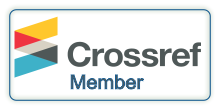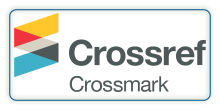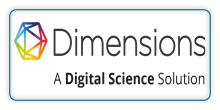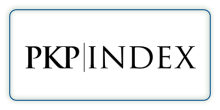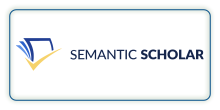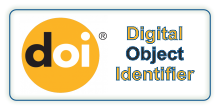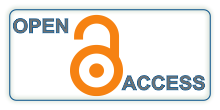TACKLING INSTANT LIQUIDITY DRAINING ATTACKS IN DEFI SMART CONTRACTS WITH HYBRID BLOCKCHAIN-AI SOLUTIONS
DOI:
https://doi.org/10.29121/digisecforensics.v2.i2.2025.65Keywords:
Blockchain, Cybersecurity, DeFi, DarkGate Ransomware, Predictive Analytics, Adaptive ConsensusAbstract
Decentralized finance (DeFi) protocols are becoming increasingly targeted by cyber threats, such as liquidity drain attacks, smart contracts flaws that leverage instant loans, and increasingly sophisticated threats that include DarkGate ransomware. We develop a hybrid framework that integrates CTI and predictive analytics to facilitate improving consensus mechanisms in a blockchain network. The proposed framework is centered on three layers , a data collection and processing layer, a security oracle layer that engages to mitigate intervention, and a dynamic adaptive mechanism to reach consensus.
A 250-node testbed was built and deployed with the Hyperledger Besu and Geth deployments of Ethereum incorporating hybrid GRU-BiLSTM which utilize GNN's for predicting attacks. The results reveal improvements of transaction processing TPS of up to +236%, settlement latency improved -75%, fork rate improved to less than 3%, and downtime improved from 15% to 1.5%. Statistical tests T-Test and ANOVA also reveal these were of high statistically significance at p < 0.01.
This study emphasizes that bridging functional aspects of AI with adaptive consensus mechanisms will be an effective approach at combating advanced cyber-attacks while maintaining reliability and resilience in DeFi systems.
References
Bagirovs, E. (2025). Blockchain Security in Decentralized Finance (DeFi).
Busari, M. (2025). Smart Contract Design for Institutional Asset Securitization in DeFi Ecosystems.
Chaliasos, S., Charalambous, M. A., Zhou, L., Galanopoulou, R., Gervais, A., Mitropoulos, D., & Livshits, B. (2024, February). Smart Contract and DeFi Security Tools: Do They Meet the Needs of Practitioners? In Proceedings of the 46th IEEE/ACM International Conference on Software Engineering (pp. 1-13). https://doi.org/10.1145/3597503.3623302 DOI: https://doi.org/10.1145/3597503.3623302
Deng, X. (2024). Enhancing Smart Contract Security: Front-Running Flash Loan DeFi Attacks and Safeguarding Smart Contracts Against Oracle Deviations (Master's thesis, University of Toronto, Canada). https://doi.org/10.1145/3597503.3639225 DOI: https://doi.org/10.1145/3597503.3639225
Dhillon, D., Diksha, & Mehrotra, D. (2024). Smart Contract Vulnerabilities: Exploring the Technical and Economic Aspects. In Blockchain Transformations: Navigating the Decentralized Protocols era (pp. 81-91). Cham: Springer Nature Switzerland. https://doi.org/10.1007/978-3-031-49593-9_5 DOI: https://doi.org/10.1007/978-3-031-49593-9_5
Dinh, N., Hoang, V. T., Van, B. N., Huong, T. H., Hong, H. D. T., Trung, H. N., & Trung, K. T. (2025). Enhancing Smart Contract Security Through DevSecOps: An Adaptive Approach for Vulnerability Detection. IEEE Access. https://doi.org/10.1109/ACCESS.2025.3606572 DOI: https://doi.org/10.1109/ACCESS.2025.3606572
Dželihodžić, A., Žunić, A., & Žunić Dželihodžić, E. (2024, June). Predictive Modeling of Stock Prices Using Machine Learning: A Comparative Analysis of LSTM, GRU, CNN, and RNN models. In International Symposium on Innovative and Interdisciplinary Applications of Advanced Technologies (pp. 447-467). Cham: Springer Nature Switzerland. https://doi.org/10.1007/978-3-031-71694-2_33 DOI: https://doi.org/10.1007/978-3-031-71694-2_33
Ekundayo, F., Atoyebi, I., Soyele, A., & Ogunwobi, E. (2024). Predictive Analytics for Cyber Threat Intelligence in Fintech Using Big Data and Machine Learning. International Journal of Research Publication and Reviews, 5(11), 1-15. https://doi.org/10.55248/gengpi.5.1124.3352 DOI: https://doi.org/10.55248/gengpi.5.1124.3352
Goel, A., Garg, P., & Kumar, M. (2024). Decentralized Finance: A Catalyst for Smart Global Value Chains in Future Financial Ecosystems. In Smart global value chain (pp. 198-211). CRC Press. https://doi.org/10.1201/9781003461432-13 DOI: https://doi.org/10.1201/9781003461432-13
Hasan, K., Hossain, F., Amin, A., Sutradhar, Y., Jeny, I. J., & Mahmud, S. (2025). Enhancing Proactive Cyber Defense: A Theoretical Framework for AI-Driven Predictive Cyber Threat Intelligence. Journal of Technologies Information. https://doi.org/10.55267/rtic/16176 DOI: https://doi.org/10.55267/rtic/16176
Hossain, K. S., Ahmed, F., Akter, M., & Hossain, M. B. (2024). Artificial Intelligence in Transactional Data Analysis: A data-Centric Analysis of Customer Behavior in the USA.
Kareem, C. M. (2025). A Systematic Review of Security Innovations in Decentralized Finance (DeFi) Using Blockchain Technology. Informatica, 49(33). https://doi.org/10.31449/inf.v49i33.7990 DOI: https://doi.org/10.31449/inf.v49i33.7990
Knutsson, H., & Engholm Flärd, M. (2025). Smart But Vulnerable: Features that Draw Attackers to Smart Contracts.
Liao, H., Leng, S., Yang, J., Xu, J., Zhang, J., & Tang, J. (2024, March). A Robust and Efficient Risk Assessment Framework for Multi-Step Attacks. In 2024 7th International Conference on Information and Computer Technologies (ICICT) (pp. 309-314). IEEE. https://doi.org/10.1109/ICICT62343.2024.00056 DOI: https://doi.org/10.1109/ICICT62343.2024.00056
Ofoegbu, K. D. O., Osundare, O. S., Ike, C. S., Fakeyede, O. G., & Ige, A. B. (2024). Data-Driven Cyber Threat Intelligence: Leveraging Behavioral Analytics for Proactive Defense Mechanisms.
Paramasivan, A. (2024). Harnessing AI for Behavioral Insights: Unlocking the Potential of Transactional Data. International Journal of Leading Research Publication, 5(10).
Parisi, C., & Budorin, D. (2024). DeFi Security. In Web3 Applications Security and New Security Landscape: Theories and Practices (pp. 3-18). Cham: Springer Nature Switzerland. https://doi.org/10.1007/978-3-031-58002-4_1 DOI: https://doi.org/10.1007/978-3-031-58002-4_1
Pishdar, M., Lei, Y., Harfoush, K., & Manzoor, J. (2025). Denial-of-Service Attacks on Permissioned Blockchains: A Practical Study. Journal of Cybersecurity and Privacy, 5(3), 39. https://doi.org/10.3390/jcp5030039 DOI: https://doi.org/10.3390/jcp5030039
Prajapati, C. (2025). Decentralized finance (DeFi) and Cryptocurrencies: The Latest Thinking of People Towards the Blockchain and FinTech Industry (Doctoral dissertation, University of the Cumberlands).
Sahu, K., & Kumar, R. (2024). A Secure Decentralised Finance Framework. Computer Fraud & Security, 2024(3). https://doi.org/10.12968/S1361-3723(24)70010-4 DOI: https://doi.org/10.12968/S1361-3723(24)70010-4
Sakthidevi, I., & Fathima, G. (2025). Threat-Aware Circular Security in Smart Healthcare. In Digital Forensics in Next-Generation Internet for Medical Things: Balancing Security and Sustainability (p. 55). https://doi.org/10.1201/9781003640325-4 DOI: https://doi.org/10.1201/9781003640325-4
Shaikh, Z. M., & Ramadass, S. (2024). Unveiling Deep Learning Powers: LSTM, BiLSTM, GRU, BiGRU, RNN Comparison. Indonesian Journal of Electrical Engineering and Computer Science, 35(1), 263-273. https://doi.org/10.11591/ijeecs.v35.i1.pp263-273 DOI: https://doi.org/10.11591/ijeecs.v35.i1.pp263-273
Yaw, H. A. (2025). Risk Management in Decentralised Finance (DeFi).
Zhang, Z., Xiao, G., Song, S., Aygun, R. C., Stavrou, A., Zhang, L., & Osterweil, E. (2024). Revealing Protocol Architecture's Design Patterns in the Volumetric DDoS Defense Design Space. IEEE Communications Surveys & Tutorials, 27(1), 353-371. https://doi.org/10.1109/COMST.2024.3392253 DOI: https://doi.org/10.1109/COMST.2024.3392253
Zou, Z., Liu, Z., Zhao, L., & Zhan, Q. (2025). Blocka2a: Towards secure and verifiable agent-to-agent interoperability. arXiv preprint arXiv:2508.01332.
Published
How to Cite
Issue
Section
License
Copyright (c) 2025 Akmam Majed Mosa

This work is licensed under a Creative Commons Attribution 4.0 International License.
With the licence CC-BY, authors retain the copyright, allowing anyone to download, reuse, re-print, modify, distribute, and/or copy their contribution. The work must be properly attributed to its author.
It is not necessary to ask for further permission from the author or journal board.
This journal provides immediate open access to its content on the principle that making research freely available to the public supports a greater global exchange of knowledge.












